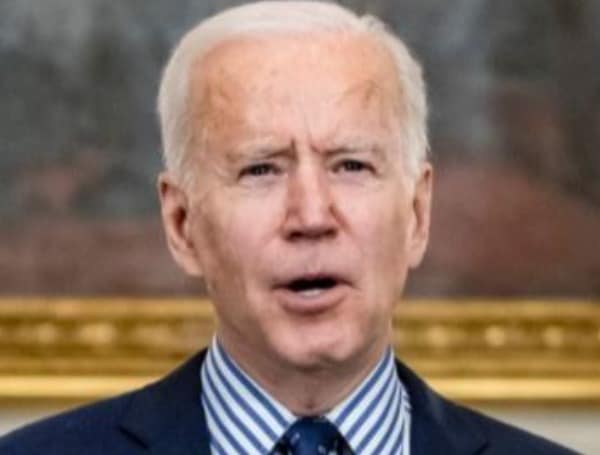Kevin Roberts, Daniel Erspamer, and Randy Hicks

In a very different time — yet in similar economic straits — then-presidential candidate Franklin D. Roosevelt spoke of the “forgotten man,” the American left behind by seismic trends and sweeping changes beyond his control.
“These unhappy times call for the building of plans that rest upon the forgotten, the unorganized but the indispensable units of economic power,” FDR told Americans on April 7, 1932 in a radio address. He went on to call for policies “that build from the bottom up and not from the top down, that put their faith once more in the forgotten man at the bottom of the economic pyramid.”
Those once-forgotten Americans are forgotten again today in President Joe Biden’s effort to “build back better.” Biden, as FDR might say, has turned to “the illusions of economic magic, ” expecting that “a huge expenditure of public funds … will completely solve the unemployment problem.”
Such illusions of economic magic hold that providing out-of-work Americans with excessive unemployment benefits won’t hold them back from finding jobs, that new “green” jobs in his climate plans will be created quickly and efficiently and in the exact regions they’re needed and that providing cash benefits for families will help get the economy back on track.
Through no fault of their own, millions of Americans have had their lives uprooted by government-imposed lockdowns and now sit perilously close to being sucked into a broken welfare system that does more to keep people in than help people out.
A team of economists at the Georgia Center for Opportunity have for the first time published a study that demonstrates how people receiving government assistance from multiple programs —such as the Earned Income Tax Credit, food stamps, free school lunches and Medicaid — face a difficult benefits cliff if they were to find work. The study calculates “benefit cliffs” for families in 888 counties across eight states. For example, a working single mom with two children in Memphis, Tennessee, would astoundingly lose more than $8,000 in combined earnings and benefits if her pay were bumped up less than $2 to a $15 hourly wage.
Efforts to fix these government programs must be results-driven, transparent and fully accountable to the people they are supposed to serve. We can’t fall into the “shovel-ready jobs” trap of the Obama administration’s economic policies.
We must find more effective ways to retrain American workers for the future—with the active participation of the private sector and community organizations. We must also again measure the success of welfare programs by how many people are successfully transitioned into the workforce, rather than by how many remain on the programs.
We must also remember that people respond to incentives. Right now, with the economy reopened and businesses desperately searching for workers, the $300-per-week Unemployment Insurance “COVID-19 bonus” is a bigger drag on our economy than the pandemic itself. Some states are already choosing to end the bonus, and some are even experimenting with “signing bonuses” to get people back to work. All states should follow suit.
It’s with these goals in mind that our three policy institutions — the Pelican Institute in Louisiana, the Georgia Center for Opportunity, and the Texas Public Policy Foundation — have launched a joint Opportunity Project to create and compel institutional change to reduce poverty, and better provide people the support they need to define their own path to flourish.
This includes policy reforms that integrate and streamline workforce services, establish uniform work requirements, eliminate welfare cliffs, update how governments collect and use data, track the most useful metrics and remove post-incarceration barriers to jobs and housing.
We agree with president Biden that to provide the opportunity for dignity and prosperity to everyone is a big, complicated job worth undertaking. But we believe that empowering people to chart their own paths to flourishing through state and local institutional support is the answer, not cradle-to-college federal government programs.
FDR’s appeal to remember the forgotten man was successful because Americans have always been willing to attack poverty. We are, after all, a people whose greatness is rooted in our goodness. It’s past time, in this post-pandemic moment, to attack it with purpose — and results.
Kevin Roberts is the chief executive officer of the Texas Public Policy Foundation. Daniel Erspamer is the chief executive officer of the Pelican Institute for Public Policy. Randy Hicks president and chief executive officer of the Georgia Center for Opportunity.
Support journalism by clicking here to our gofundme or sign up for our free newsletter by clicking here
Android Users, Click Here To Download The Free Press App And Never Miss A Story. It’s Free And Coming To Apple Users Soon.

